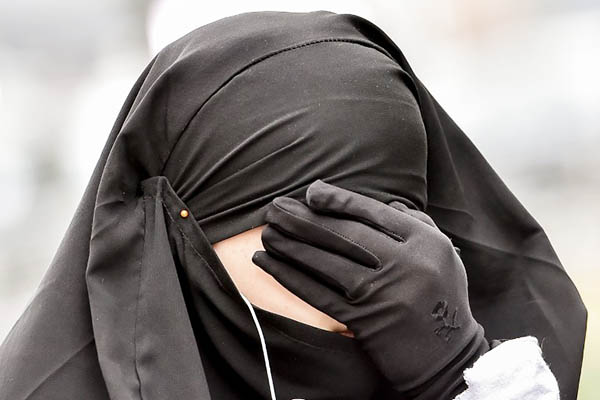
File photo. Philippe Huguen—AFP
Foreign Office urges international community to play its role in convincing India to curb discrimination of minorities
Pakistan on Tuesday expressed “serious concern” over the Karnataka High Court of India’s ruling banning Muslim girls from wearing hijab in in educational institutions.
“The decision manifestly has failed to uphold the principle of freedom to religious practices and impinges on the human rights,” read a statement issued by the Foreign Office. “Equally sad is the fact that the judiciary in India, which is expected to act as a bulwark against dehumanization, stigmatization and discrimination against minorities, has completely failed to uphold the principles of justice and equality,” it added.
“This decision marks a fresh low in the relentless anti-Muslim campaign where even the pretext of secularism is being weaponized to target Muslims,” read the statement, adding that the “flawed” ruling risked expediting the marginalization of minorities, especially Muslims, in India, while also emboldening Hindu zealots to target them with impunity.
“It is deeply concerning that the malicious trend of characterizing Muslims as ‘others’ or ‘20%’ by prominent BJP leaders, which was continuing with appalling impunity, is now also being translated into decisions by the judiciary,” the Foreign Office emphasized, noting the Karnataka ruling came against the backdrop of the discriminatory Citizenship Amendment Act and the Indian Supreme Court’s judgement in the Babri mosque demolition case.
“India, under its current dispensation, is oblivious to the fact that its so-called ‘secular’ credentials are fast waning, much to the detriment of its minorities,” it continued. “Pakistan strongly urges the Indian government to ensure safety, security and protection of minorities, particularly Muslims, and their right to practice religion,” it said.
The Foreign Office also called upon the international community, the U.N. and relevant international organizations to play their role in ensuring India curbed majoritarianism and discrimination to ensure protection of all minorities, especially Muslims.
Earlier, an Indian court upheld a ban on the hijab in class in the state of Karnataka, despite mass protests by Muslim students and parents—and counter-protests by Hindu students—against the ban’s imposition last month. “We are of the considered opinion that wearing of hijab by Muslim women does not form a part of essential religious practice,” Karnataka High Court Chief Justice Ritu Raj Awasthi said in his judgment, adding that the government had the power to prescribe uniform guidelines.
Students who had challenged the ban had said wearing the hijab was a fundamental right guaranteed under India’s constitution, and an essential practice of Islam.
